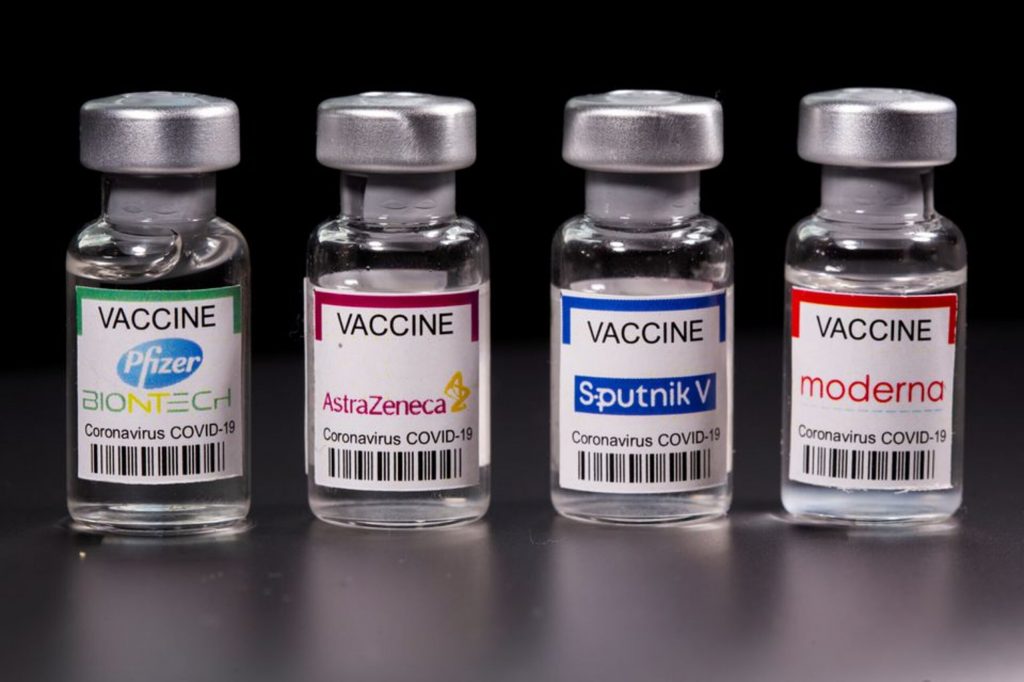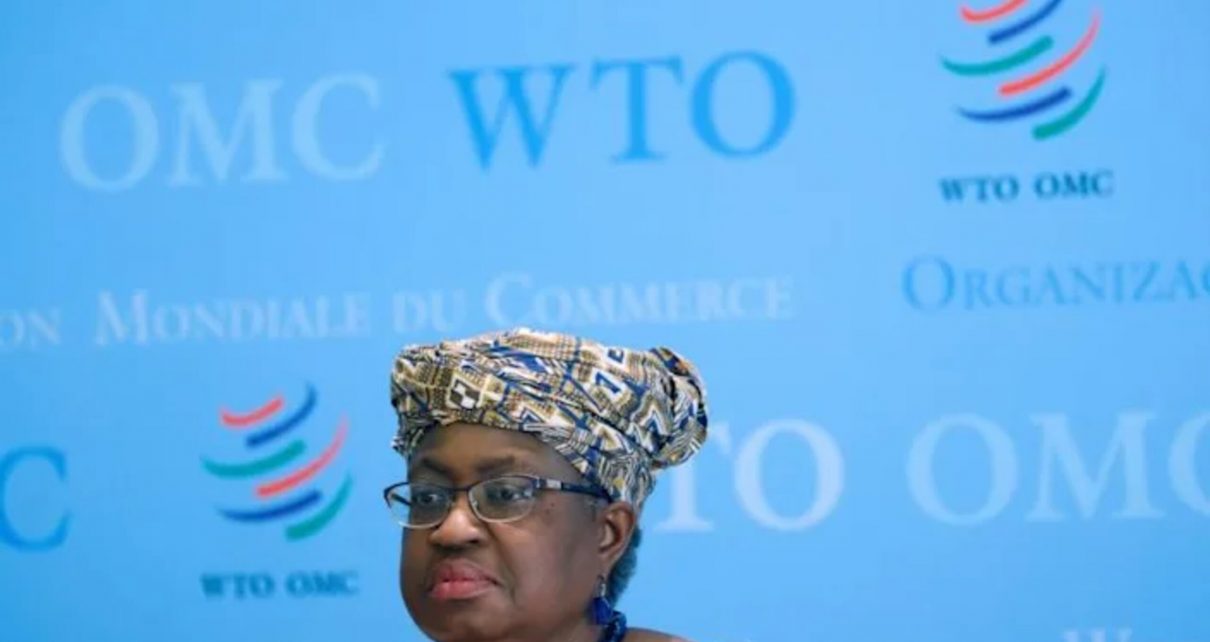U.S. reverses stance, backs giving poorer countries access to COVID vaccine patents
The World Trade Organization chief called Wednesday for international agreement on how to ensure more equal access to Covid-19 vaccines, amid an ongoing standoff over a proposed patent waiver for the jabs.
“The way the WTO handles this matter is critical,” Ngozi Okonjo-Iweala told country representatives taking part a meeting of the WTO general council, the organisation’s main decision-making body.

“We need to have a sense of urgency on how we approach this issue of response to COVID-19 because the world is watching,” she said, describing equitable access to the tools to fight the pandemic as the “moral and economic issue of our time”.
The global trade body has for months been facing calls led by India and South Africa to temporarily remove the intellectual property protections on Covid-19 vaccines, in a move proponents say would help boost production in developing countries that so far have received far fewer jabs.
But that notion has until now met fierce opposition from pharmaceutical giants and their host countries, which insist the patents are not the main roadblocks to scaling up production, and warn the move could hamper innovation.
Okonjo-Iweala, who became the first woman and first African to take the helm of the WTO on March 1, has not taken a position on whether the waiver is the way forward, but has insisted that countries need to agree on a common path that will help resolve the issue of inequal access to the vaccines.
‘Compromise’?
“Vaccine policy is economic policy because the global economic recovery cannot be sustained unless we find a way to get equitable access to vaccines, therapeutics, and diagnostics,” she said.
While the positions on waiving patent rights remain divided, WTO spokesman Keith Rockwell told reporters that Wednesday’s discussions on the proposal had been “very constructive”.
“All parties have the same objective, which is to ramp up production and improve the efficiency and the equity of the distribution process,” he said, adding that all of more than 40 country representatives who spoke during the meeting agreed “that not enough vaccines are getting to the developing world.”
While opinions on the best route to ramping up production differed, he said the tone of the meeting had been much more constructive than during previous discussions.
Among other things, he said, India and South Africa had said they plan to “revise their proposal”, with a new text expected next week with possible “compromises”.
WTO said a meeting might be held later this month to discuss the revised text before a formal meeting planned in early June.
Okonjo-Iweala welcomed the news of the coming text revision aimed to help reconcile positions.
“I am firmly convinced that once we can sit down with an actual text in front of us, we shall find a pragmatic way forward, acceptable to all sides,” she said.
She voiced hope that the parties could reach an agreement that would “allow the kinds of answers that our developing country members are looking at with respect to vaccines, whilst at the same time looking at research and innovation and how to protect them.”
US backs waiving intellectual property rights on vaccines
In another development, President Joe Biden on Wednesday threw his support behind waiving intellectual property rights for COVID-19 vaccines, bowing to mounting pressure from Democratic lawmakers and more than 100 other countries, but angering pharmaceutical companies.
Biden voiced his support for a waiver – a sharp reversal of the previous U.S. position – in remarks to reporters, followed swiftly by a statement from his top trade negotiator, Katherine Tai, who backed negotiations at the World Trade Organization.
“This is a global health crisis, and the extraordinary circumstances of the COVID-19 pandemic call for extraordinary measures,” Tai said in a statement, amid growing concern that big outbreaks in India could allow the rise of vaccine-resistant strains of the deadly virus, undermining a global recovery.
Shares in vaccine makers Moderna Inc (MRNA.O) and Novavax Inc (NVAX.O) dropped several percent in regular trade, although Pfizer Inc (PFE.N)stock fell only slightly.
The head of the World Health Organization, Tedros Adhanom Ghebreyesus, called Biden’s move a “MONUMENTAL MOMENT IN THE FIGHT AGAINST #COVID19” on Twitter, and said it reflected “the wisdom and moral leadership of the United States.”
Pharmaceutical companies working on vaccines have reported sharp revenue and profit gains during the crisis. The industry’s biggest lobby group warned that Biden’s unprecedented step would undermine the companies’ response to the pandemic and compromise safety.
One industry source said U.S. companies would fight to ensure any waiver agreed upon was as narrow and limited as possible.
Robert W. Baird analyst Brian Skorney said he believed the waiver discussion amounted to grandstanding by the Biden administration and would not kick off a major change in patent law.
“I’m skeptical that it would have any sort of broader long- term impact across the industry,” he said.
Biden backed a waiver during the 2020 presidential campaign in which he also promised to re-engage with the world after four years of contentious relations between former President Donald Trump and U.S. allies. Biden has come under intensifying pressure to share U.S. vaccine supply and technology to fight the virus around the globe.
His decision comes amid a devastating outbreak in India, which accounted for 46% of the new COVID-19 cases recorded worldwide last week, and signs that the outbreak is spreading to Nepal, Sri Lanka and other neighbors.




